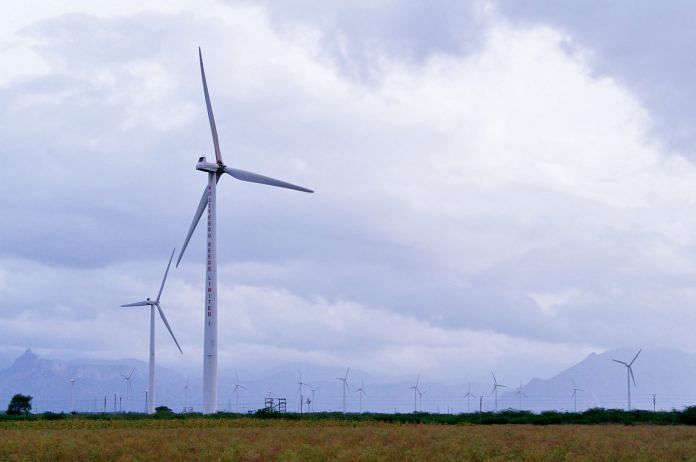New Delhi: India has made consistent improvements in moving towards cleaner energy sources since 2015, and is among the emerging centres that have a high demand for technologies in sustainable power generation, according to the latest World Economic Forum (WEF) report.
The WEF’s Fostering Effective Energy Transition 2020 report, published Wednesday, presents the Energy Transition Index (ETI) 2020 for 115 countries. The index measures how well the countries balance energy security and access, with environmental sustainability and affordability.
The report found that 94 countries have made progress towards clean energy since 2015.
India is ranked 74 on the list and according to the WEF report, it has made consistent efforts to improve its enabling environment — the political commitments, consumer engagement and investment, innovation and infrastructure that allows more clean energy developments to take place. In 2019, India’s rank was 76 in the index.
The report adds that the Indian government’s renewable energy expansion programme, which aims to build 275 GW capacity by 2027, has helped create an enabling environment for green energy.
India has also made significant strides in energy efficiency through bulk procurement of LED bulbs, smart metres and programmes for labelling of appliances, the report said.
Also read: India’s carbon emissions fell in 2019-20 – the first time in 4 decades
Covid-19 could negate strides in clean energy
However, according to WEF, there is a risk that this progress in the world’s transition to clean energy will get negated due to the coronavirus pandemic.
The pandemic is likely to lead to a fall in demand, price volatility and there will also be pressure on governments to mitigate socio-economic costs.
The report highlights that policy frameworks for energy transition need to be more resilient against such external shocks in the future.
“The coronavirus pandemic offers an opportunity to consider unorthodox intervention in the energy markets and global collaboration to support a recovery that accelerates the energy transition once the acute crisis subsides,” Roberto Bocca, Head of Energy and Materials, WEF said in a statement.
“This giant reset grants us the option to launch aggressive, forward-thinking and long-term strategies leading to a diversified, secure and reliable energy system that will ultimately support the future growth of the world economy in a sustainable and equitable way,” Bocca added.
Also read: Toilet paper and other recycled goods are taking a big hit due to coronavirus
The report
The WEF report shows that 75 per cent of countries have improved their environmental sustainability.
The greatest overall progress is observed among emerging economies, the report found.
However, the average ETI score for countries in the top 10 percent remain constant since 2015, signalling an urgent need for breakthrough solutions in the energy sector.
Sweden leads the ETI for the third consecutive year, followed by Switzerland and Finland.
The scores for US (ranked 32), Canada (ranked 28), Brazil (ranked 47) and Australia (ranked 36) were either stagnant or declining.
Argentina (56), China (78), India (74), and Italy (26) are among the 11 countries with consistent annual improvements in ETI scores since 2015.
In China’s case, problems of air pollution have resulted in policies to control emissions, electrify vehicles, and develop the world’s largest capacity for solar PV (a technology that converts sunlight to electricity) and onshore wind power plants.
On the other hand, scores for Canada (28), Chile (29), Lebanon (114), Malaysia (38), Nigeria (113), and Turkey (67) have declined since 2015.
More than 80 per cent of the total countries have improved performance on energy access and security since 2015, but progress in developing countries in Asia and Africa remains a challenge, the report suggests.



